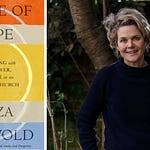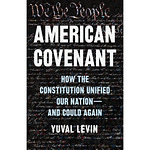Mako Fujimura is an artist and a philosopher. He’s been blowing my mind for 15 years, first with his painting and then with his writing.
"Culture is not a territory to be won; it is instead a resource we are called to steward,” he has said.
That statement is a rebuke to the last forty years of American life. Mako is a Christian, and so he is in particular rebuking American Christianity. He gives us a radically different paradigm through which to view the world.
He is a renowned painter. His works have been shown all over the world, at "the Dillon Gallery in New York, Sato Museum in Tokyo, The Tokyo National University of Fine Arts Museum, Bentley Gallery in Arizona, Gallery Exit and Oxford House at Taikoo Place in Hong Kong, Vienna’s Belvedere Museum, Shusaku Endo Museum in Nagasaki.”
"He is one of the first artists to paint live on stage at New York City’s legendary Carnegie Hall as part of an ongoing collaboration with composer and percussionist, Susie Ibarra.”
Mako paints using an ancient Japanese technique called Nihonga, which relies on the use of pulverized minerals and is makes use of papers made from Japanese mulberry and hemp fibers. He has likened his use of these pulverized minerals to the way that suffering can be redeemed in our own lives.
"These materials themselves have to be pulverized and pounded to become beautiful,” he said.
We talk about his experience on 9/11/01, when he lived three blocks from the World Trade Center and didn’t know for some time that morning whether his children, who were in school two blocks from the towers, had survived.
This is from an August 2019 commencement address: "After 9/11, I had to train my imagination by painting over and over images of fire. I needed to transform haunting memories and images of destructive fire into the fire of sanctification. When I saw the spire fall at Notre Dame last month, yes, I was right back where I started — but I was able, also, to turn my mind and my heart back to my studio near Ground Zero, and again go into my daily practice toward sanctification. These fires do not have to end in destruction. Fire can purify our memory and desire. (“Memory and desire, stirring Dull roots with spring rain.” T.S Eliot, The Wasteland) A renewed neuron network can form, if we imagine through the darkness."
Mako has written three books: “Culture Care,” “Silence and Beauty,” and “Refractions.” His work on “Silence and Beauty” brought him into collaboration with renowned director Martin Scorsese, who directed the film
“Silence,” a story based on the Japanese novel by the same name written by Shusaki Endo, which plays a big part in Mako’s book.
Here are links to a few other writings & speeches.
“The Aroma of the New” - Makoto Fujimura commencement address at Belhaven University, 2011
“Would You Give Your Life for Beauty?” - Makoto Fujimura commencement address at Messiah College, 2013
“Support this show http://supporter.acast.com/thelonggame.
See acast.com/privacy for privacy and opt-out information.













Share this post